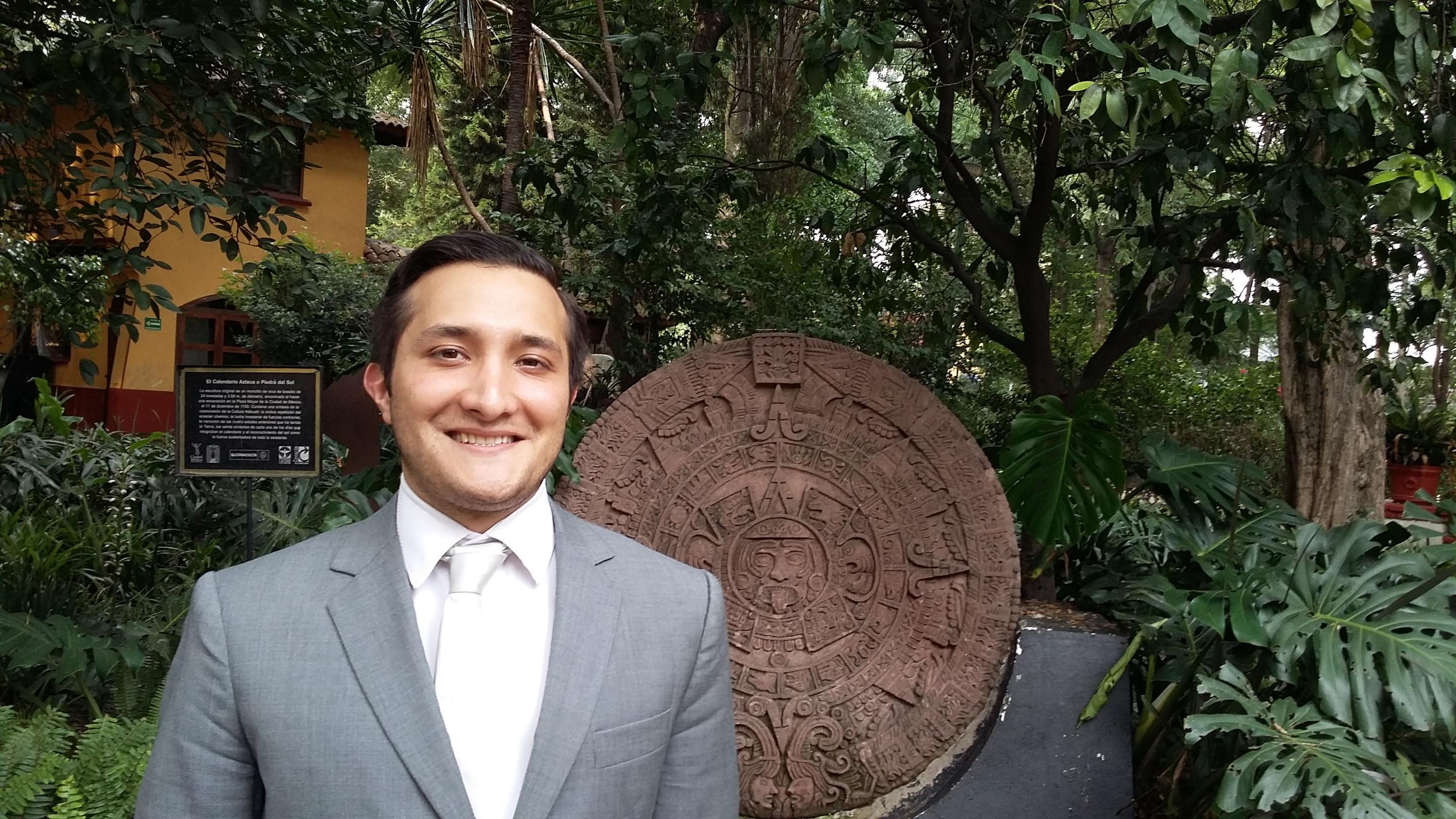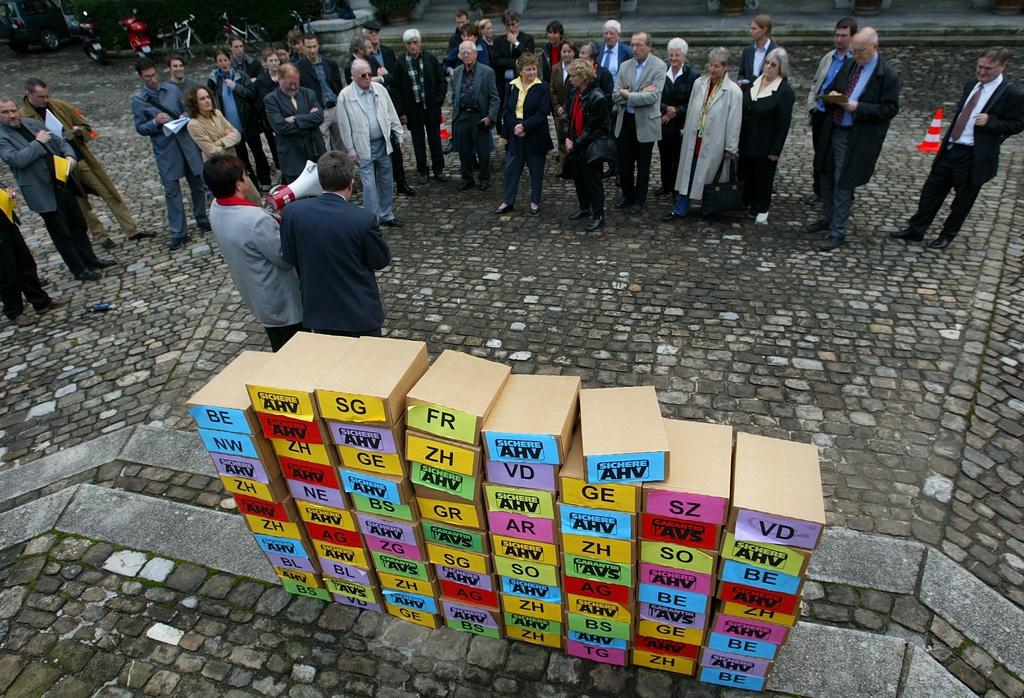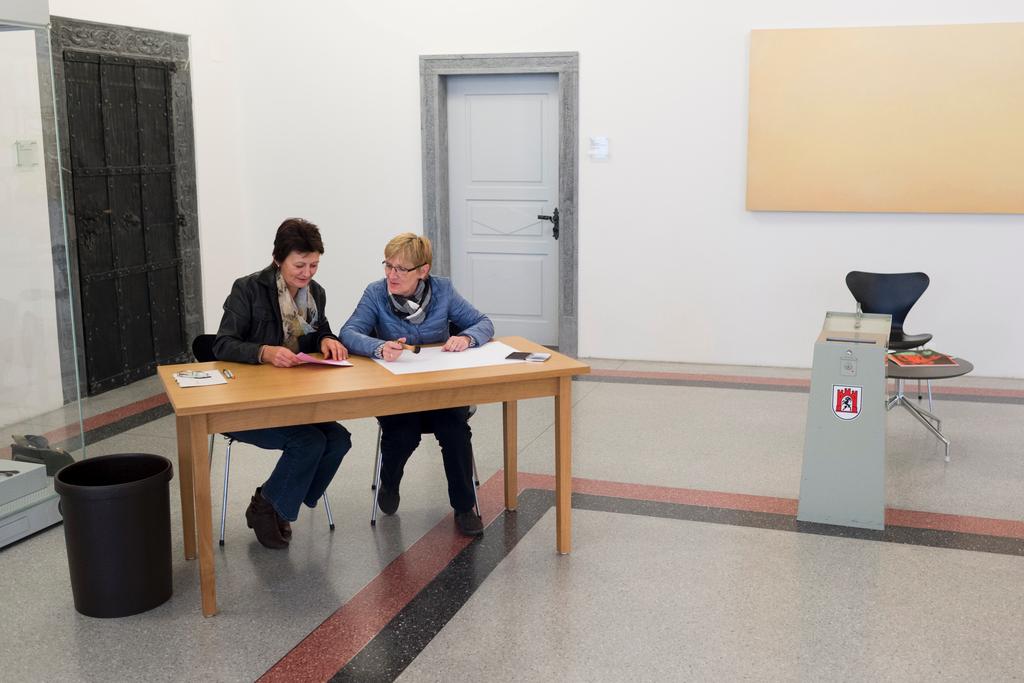Mexico’s direct democracy exists only on paper

Citizens in one of Latin America’s most prosperous nations have lost faith that politicians will listen to their political demands. More than 52% of all registered voters abstained in Mexico’s June parliamentary elections, when 87 of the 123 million people took part. Participatory democracy is still in its infancy.
Luis Fernández, president of the non-governmental organisation, Participando por México, talks to swissinfo.ch about the steps needed to boost the participation of citizens in the country’s decision-making process.
swissinfo.ch: The notion of direct democracy in Latin America differs from Europe. What is specific about Mexico’s approach?
Luis Fernández: Direct democracy in Mexico is defined as a form of decision-making or expression of people’s opinion. But the results are not binding.

Essentially, it is a theoretical concept. Citizen participation is enshrined in the electoral laws of 78% of Mexico’s states, and the issue is discussed in academia all the time, but there are no practical results.
swissinfo.ch: Mexican law provides for three instruments of direct democracy: the plebiscite, referendum and people’s initiative. Let’s look at the different forms in more detail…
L.F.: The plebiscite allows a mayor to submit a project to see whether the public supports or rejects it.
However, this form of citizens’ participation is not enshrined in the Mexican constitution.
Such a poll was organised for Mexico City in 1993. Paradoxically, when this happened, the capital (which accounts for 20% of the total population of Mexico) lacked the powers to elect a mayor and it did not even have a district parliament.
The citizens were asked whether they wanted the government to be elected directly. They were also asked whether or not they were in favour of a parliament for the Mexico City and if the district should become a state of its own within the Mexican federation.
The first two issues won an overwhelming majority of votes. As a result, the government of the district is elected directly by citizens and there is a local parliament now. The third issue, however, is still pending.
swissinfo.ch: How does Mexico define and apply the referendum right?
L.F.: Basically, it is the right of citizens to abolish or amend laws. This is possible in 22 states [out of 31 states plus Mexico City].
Yet again, it is a theoretical concept. In Mexico City, the backing of 0.4% of registered voters [44,000 people] or 10% of local parliamentarians [181 of the 1,810 members] to launch a referendum.
But, even in the Mexican capital, where citizen participation is above average, there has been only one referendum until now.
I would argue, this is not because the citizens do not like to hold referendums, but because of a flaw in the system: The district parliament can approve or reject a referendum. However, if it does not seem convenient for the politicians, they can basically shelve a referendum.
swissinfo.ch: Which brings us to the people’s initiative. How does it work in Mexico?
L.F.: A people’s initiative aims to make a new law. Let’s take the example of Mexico City again, as it has the most advanced system, the highest number of potential voters [10 million] and because most research has been done here.
The parliament of Mexico City can approve or veto an initiative. If its members don’t accept a proposal by the citizens, it is simply thrown out and put away in a drawer.
Try to imagine what it takes to collect at least 30,000 signatures. It is time consuming, costs a fair bit of money, and needs commitment and communication efforts.
You can’t blame citizen groups to choose a more pragmatic approach to have a say in politics: namely through lobbying among the parliamentarians. It is easier to approach 66 lawmakers than to reach out to 30,000 citizens.
swissinfo.ch: To obtain the commitment of the citizens, direct democracy must be turned into action. To what extent are these forms of participation binding?
L.F.: They are not and that’s a major issue. For a referendum to be binding, at least 30% of citizens listed in the so-called electoral register have to take part.
Mexican voter
A study by two prestigious institutes found that the Mexican electorate does not believe their vote will help solve problems.
Experts say the survey, published in 2015, reflects widespread citizens’ distrust in government institutions and the country’s justice system. As a rule, the average Mexican believes that the law is not respected.
So what’s the problem? The nominal list includes all citizens over the age of 18 who have registered to participate in an election. The electoral register, by contrast, is much broader. It includes people whose credentials have expired who lost their official papers. Even citizens who have died but the authorities were not notified.
With a minimum one-third turnout of the electoral register, we are talking about 2.6 million people in Mexico City required to take part. This is extremely difficult to achieve even in votes of great importance and public interest.
Primarily, Mexicans are not used to this form of participatory democracy. Secondly, because in Latin American countries repression is a reality that restrains citizen participation.
swissinfo.ch: So Mexico is doomed and direct democracy will never work?
L.F.: Associations such as the one I represent strongly believe in direct democracy. We also believe it can be implemented.
Therefore, we make recommendations and work every day to achieve this goal.
swissnfo.ch: What are the recommendations formulated your group, Participando por Mexico?
L.F.: We say both the government and parliament should abandon the double role of judge and jury in the case of a plebiscite or a referendum.
It must not be left up to them to determine whether these democratic procedures take place or not. This task should be assigned to an independent body – the National Electoral Institute for instance.
Also, the threshold to validate a binding result has to be lowered. I think a participation rate of 10-15% of the nominal list would suffice.
Yet is a very complex issue and opinions are divided.
swissinfo.ch: In Switzerland, direct democracy is essential for public life. What do you think about the way we work?
L.F.: In Switzerland, about two in five people on average participate in the votes. In Mexico, there are merely 2,100 citizens.
It is obvious that a democracy needs citizens who use their democratic rights. You can see a high turnout in Swiss votes on more relevant issues. I think specifically about the 2009 poll on a proposed ban on minarets.
In Mexico, direct democracy is still in its infancy. In 20 years or so civil society might be ready for a better participation, promoting different projects, setting up more electoral councils.
For the moment, most people in Mexico seem absorbed by their own life or they are afraid to take an active role.
I think children should learn to be responsible citizens of their country, as they will make the decisions in the future.
Most importantly perhaps, there is a lot at stake. Decisions at the polls can really make a difference. Citizens should realise how their participation matters and how much hard work it is to make change happen.
Referendum in Latin America
The referendum is the tool of direct democracy best known in Latin America, but its use is still limited.
Referendums have been held in Argentina, Bolivia, Brazil, Colombia, Costa Rica, Ecuador, Guatemala, Panama, Peru, Uruguay and Venezuela, in line with the constitutions of those countries.
In Chile, El Salvador, Honduras, Nicaragua and Paraguay, referendums were held even though their constitutions do not provide for it.
The constitutions of Mexico and the Dominican Republic do not guarantee a referendum right, and it has never been used so far.
Adapted from Spanish by Urs Geiser

In compliance with the JTI standards
More: SWI swissinfo.ch certified by the Journalism Trust Initiative














You can find an overview of ongoing debates with our journalists here . Please join us!
If you want to start a conversation about a topic raised in this article or want to report factual errors, email us at english@swissinfo.ch.